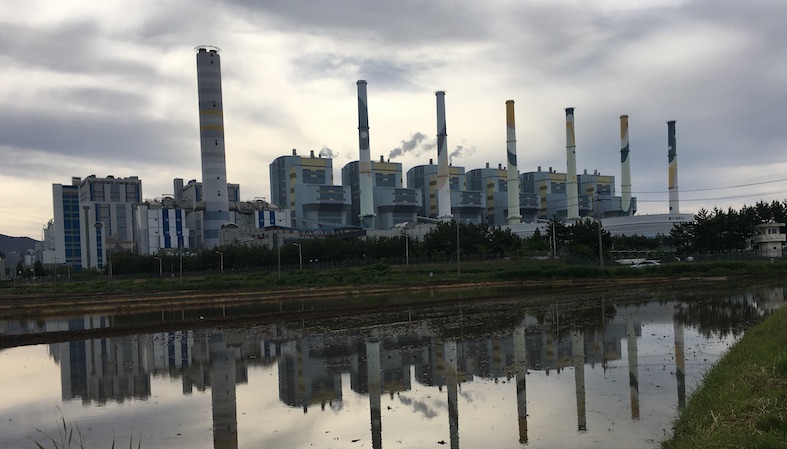South Korea should phase out coal power by 2029 and stop funding coal projects in other Asian nations to limit greenhouse gas emissions as part of the Paris climate agreement, a research group said on Thursday.
Climate Analytics, a non-profit science and policy research institute based in Germany, said South Korea now has 60 coal fired plant units, accounting for a third of the nation’s greenhouse gas emissions, and another seven units under construction.
With expected lifetimes of 30 years, the new plants could be in operation into the 2050s.
“Korea must phase out coal power by 2029 in order to do its part to limit climate change under the Paris Agreement,” Climate Analytics said in a study, urging a far more rapid shift to renewable energies such as solar and wind power.
With only the existing plants, the country will overshoot its fair budget for greenhouse gas emissions by 2.5 times, it estimated.
‘Mysterious’ seasons harm Nigeria’s farmers who need help with climate change
The 2015 Paris Agreement seeks to limit the rise in average global temperatures to well below 2 degrees Celsius above pre-industrial times, while aiming for a tougher limit of 1.5C. Worldwide, the UN´s Intergovernmental Panel on Climate Change says the 1.5C goal would mean cutting coal use “close to 0%” of power generation by 2050.
Paola Yanguas Parra, an author of the report at Climate Analytics, told Climate Home News that South Korea should also halt its international role in backing coal in Asian nations including Vietnam and Indonesia.
“This is having a huge carbon footprint in other countries,” she said, citing estimates that Seoul had invested $5.7 billion in 22 foreign coal projects from 2013-19.
A 2019 report by the European Commission showed that South Korea’s greenhouse gas emissions were 13.9 tonnes per capita in 2015, the latest year for which data is available, more than double the world average of 6.7.
South Korea’s existing climate plan submitted as part of the Paris Agreement aims to cut emissions by 37% below projected rates of growth with no climate policies.
“Korea … is increasing the production of renewable energy in order to reduce greenhouse gas emissions from fossil fuel,” the plan says. The South Korean Environment Ministry did not immediately reply to a request for comment on Thursday’s study.
Sejong Youn, director at South Korea-based climate policy group Solutions for Our Climate (SFOC), said “2029 is an ambitious goal (for exiting coal) but I think it’s necessary to meet the Paris Agreement goals”.
We need your help… Climate Home News is an independent news outlet dedicated to the most important global stories. If you can spare even a few dollars each month, it would make a huge difference to us. Our Patreon account is a safe and easy way to support our work.
He told CHN it was unclear if Seoul would scale up the ambition of its climate targets this year, the five-year milestone of the 2015 Paris Agreement when countries are meant to upgrade or reaffirm their plans.
Worldwide, coal accounts for almost 40% of electricity generation and more than 40% of energy-related carbon dioxide emissions, the International Energy Agency says.
Some nations are setting dates for phasing out coal.
The Powering Past Coal Alliance, for instance, says it counts 33 governments among its members including G7 members Germany, France, Britain, Italy and Canada as well as other nations ranging from Ethiopia to the Marshall Islands.
